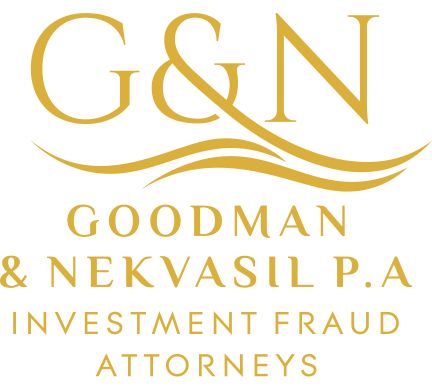Ponzi Schemes
Ponzi schemes often garner media attention when they collapse, however, few people clearly understand the basics of Ponzi schemes, including their historical precedent, defining characteristics, and how to avoid investing in one. Ponzi schemes can happen anywhere, and it is important to know about these types of financial fraud to avoid being swindled, or to have a chance to recover your investment if you have already suffered losses.
A Modern Fraud with Historical Roots
The name “Ponzi Scheme” actually originates from one of the earliest known instances of this type of financial fraud, perpetrated by Charles Ponzi in the 1920s. This financial fraud involved postage stamp speculation, and resulted in major losses for the investors involved. Though this scheme was executed without modern technology, the basic fundamentals were the same as any Ponzi scheme you would hear about today. The defining characteristic of a Ponzi scheme is that rather than paying investors returns from their investment, each investor is paid with subsequent participant’s investments. Thus, if Person A invested in the scheme, they would be paid a return out of Investor B’s investment, who would be paid out of Investor C’s investment, who would need Investor D to sign up to get paid. While investments are being siphoned from new investor to previous investor there is also a large portion of the investments being diverted to those perpetuating the scheme, all under the guise of an upstanding, high-return investment opportunity.
Destined to Fail
Although Ponzi schemes may appear initially to provide lucrative returns, all Ponzi schemes have the same fatal flaw. They require that new investors continue to provide new capital. When the new investments stop, the Ponzi scheme will fail. The Ponzi scheme will also fall apart if a significant amount of investors try to pull out their funds at the same time. Because at any given time participants’ invested funds have likely been diverted to paying previous investors and paying the Ponzi scheme’s orchestrators, at no point are all of the initial investments actually liquid and available in full. A breaking point exists for any Ponzi scheme, and this type of financial fraud is usually discovered when either: 1) people stop signing up for the Ponzi scheme, or 2) the perpetrators of the Ponzi scheme are unable to pay all of the investors seeking to withdraw their assets. To avoid significant losses, knowing the signs of these ill-fated Ponzi schemes is therefore important.
Know the Signs
Red flags to consider when evaluating an investment to determine if the opportunity may be a Ponzi scheme include the following:
- Guaranteed High Returns with Little or No Risk - Ponzi schemes may provide high returns for a short time, but these returns come with grave risks that are being concealed.
- Consistent Returns Despite Market Fluctuations - Equity investments go up and down based on how the market is doing. If your investment is said to be an equity investment but gives consistent returns no matter what happens in the market, the investment may actually be a Ponzi scheme.
- Issues Cashing Out or Receiving Payments - If you try to liquidate your investment and have trouble doing so, or you do not receive scheduled payments, the investment may be a part of a Ponzi scheme.
- Secretive Practices - If getting clear information about your investment is difficult, including investment contracts, account statements, proof of the investment’s registration, or proof of the seller’s security licensing, the seller may be attempting to conceal a Ponzi scheme.
If you see these red flags, what happens next should involve professional legal counsel. If you believe you may have been involved in a Ponzi scheme, contact us now for a free, confidential securities law case evaluation to discuss your options for recovering your losses.
Experience & Knowledge You Can Trust
When choosing a securities attorney, longstanding history and experience in the field is as important as being ahead of the curve. Goodman & Nekvasil is firmly grounded in both worlds, with our promise of good faith and trust built-in to how we do business. If you are interested in hiring Goodman & Nekvasil for your securities law claim, contact the firm today for a free consultation.
Get your Free Consultation
